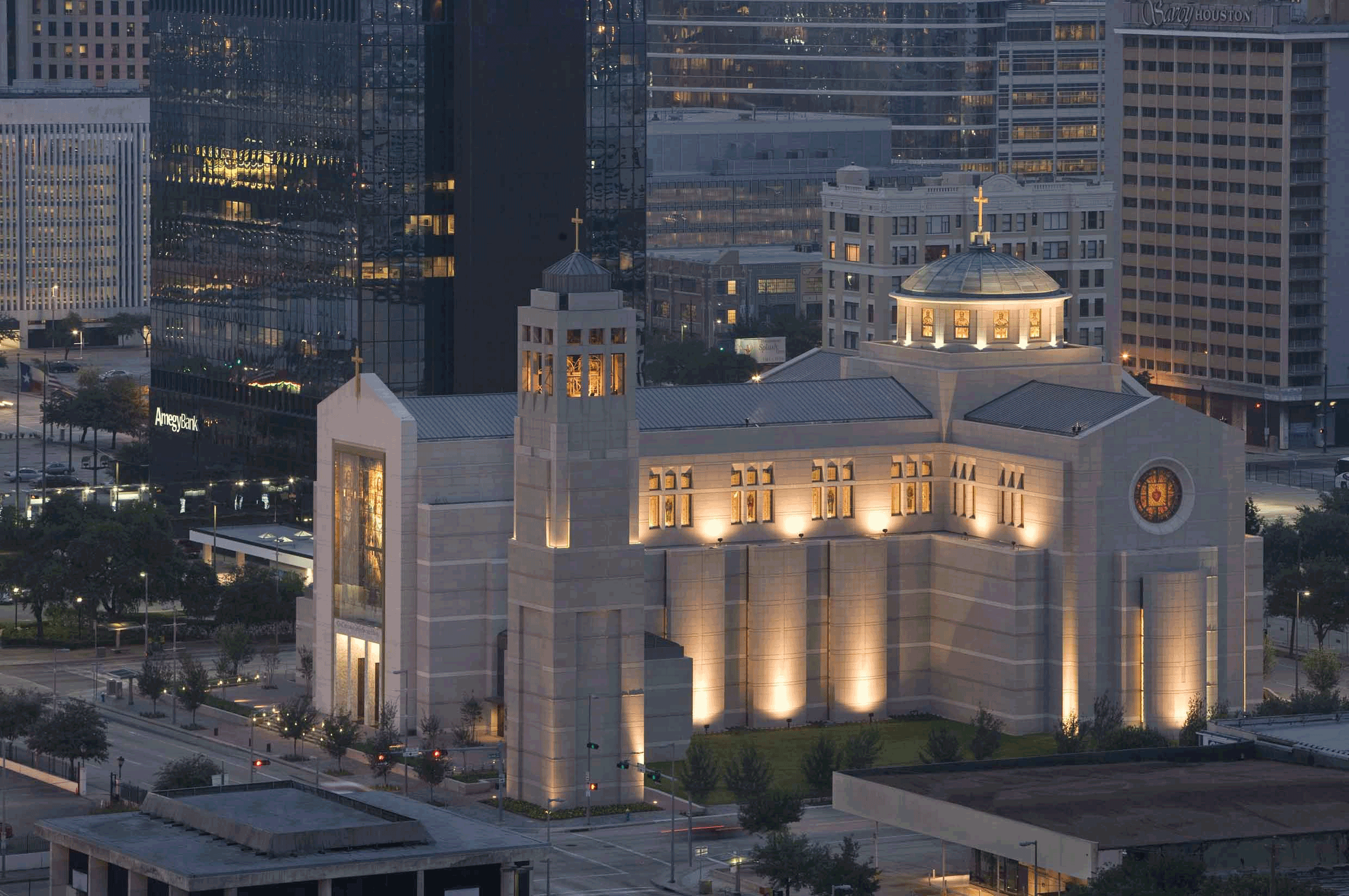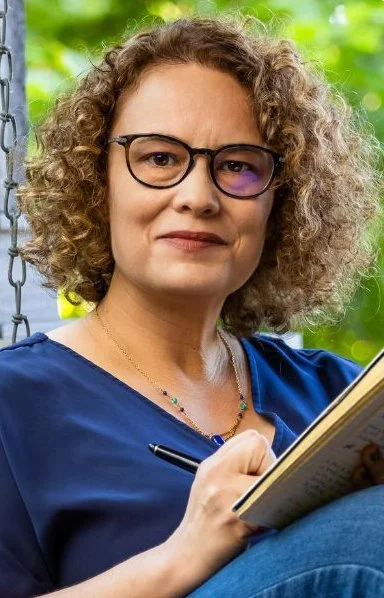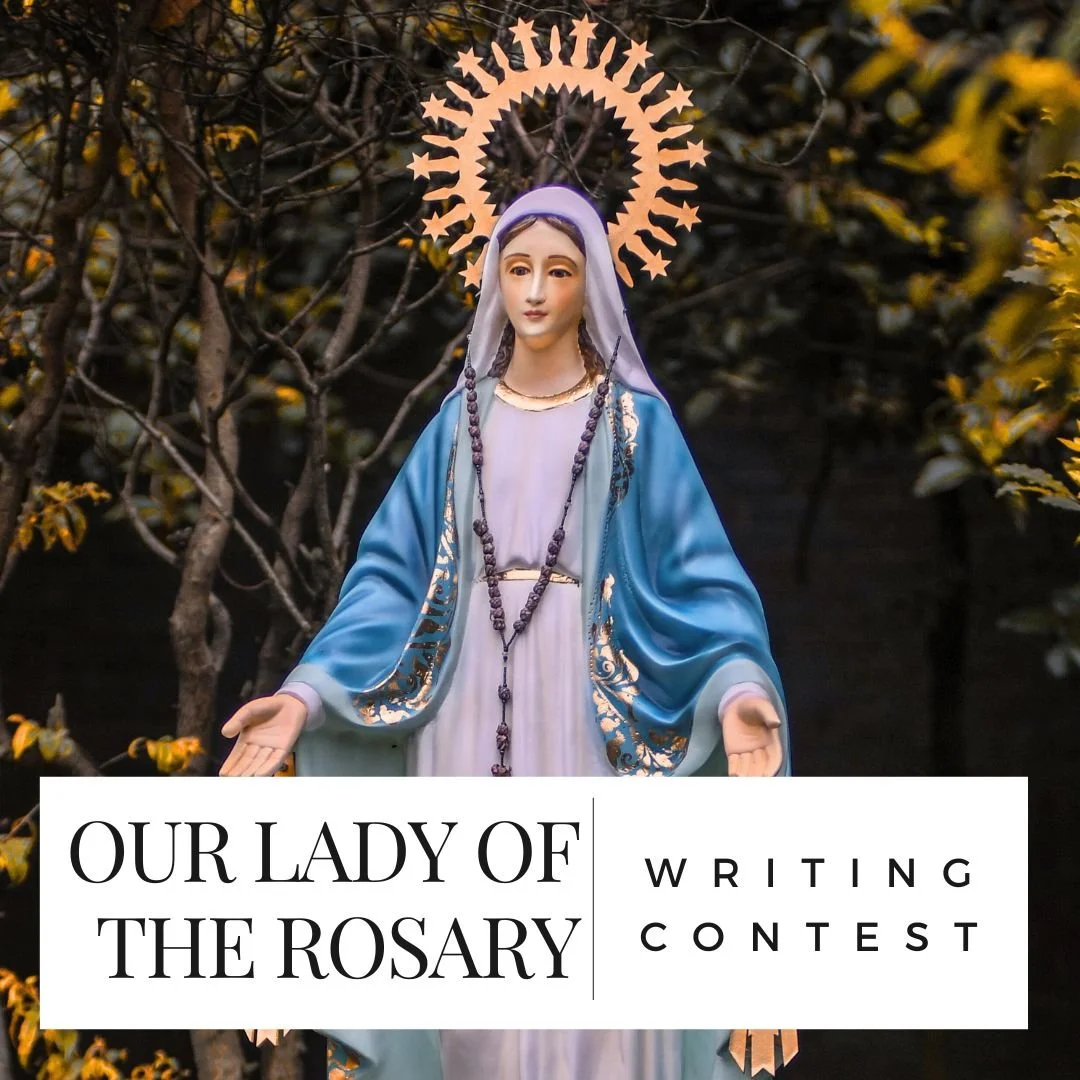
C O N T E S T S
2025 Our Lady of the Rosary Poetry Contest
Announcing the Winners of the
2025 Our Lady of the Rosary Contest
Congratulations to the winners of CLA’s 2025 Our Lady of the Rosary Poetry Contest!
We thank all who entered the contest. We trust that the poems from this contest contribute to the on-going Catholic Literary Revival with their ardent spiritual expression in skilled measures.
The finalists for this contest were: Emma Atkinson, Mary Colvin, Fred Gallagher, Elisa A. Garza, Nicholas Hanus, Christopher Honey, Katherine Iadipaolo, Lindsay Schlegel, Megan Thome, Lindsay Tsohantaridis
We encourage you to join us for the Virtual Celebration of Winners and Finalists with judge Tamara Nicholl-Smith, on Monday, October 6, 2025, 7:00 p.m. CST. Please register at this link to attend.
First Prize: Emma Atkinson
Second Prize: Megan Thome
Third Prize: Fred Gallagher
Honorable Mention: Lindsay Schlegel
Honorable Mention: Lindsay Tsohantaridis
This year’s 2025 Contest Judge is Tamara Nicholl-Smith.
Tamara Nicholl-Smith’s poetry has been featured on numerous radio shows, a spoken-word classical piano fusion CD, and public appearances. It has also appeared in print in many publications, including The Examined Life Journal, Catholic Arts Today and America. She is a popular faculty member for the Catholic Literary Arts/ virtual class series and longtime CLA member. Tamara inaugurated the CLA School Visits by a Catholic Poet in 2025.
Her poem on Saint Jerome is part of the display of the Guttenberg Bible installed at the University of Saint Thomas. Houston, Texas. Tamara is a member of Catholic Literary Arts and a contributor to the “Joy of Catholic Poetry” and “Resurrection Joy” presentations done at parishes, schools, and universities. She coordinates the annual Catholic Literary Arts’ Sacred Poetry Contest which brings together poets from across the globe to write in response to curated artwork from both historical and contemporary sacred artists.
Honorable Mention
To Lose a Son
by Lindsay Schlegel
Thirteen years ago my evenings were spent
Unable to speak, lost in the blue depth
Of swirls in the rug, sobs stealing my breath,
My womb empty, my heart full of lament.
At night, we tag-teamed prayer to orient
Our hearts to Our Lady’s—until the strength
Had to come from my husband. Our son’s death
Had rendered me silent, lodged in torment.
These days I rotate a ring of roses,
Wrist on the wheel of a blue SUV.
In time my heart has healed and I’ve chosen
One decade per child, my progeny
Entrusted to the loving care of one
Who knows, too, what it is to lose a son.
Second Place
An Ordinary Pietà upon my father’s death
by Megan Thome
An Ordinary Pietà
upon my father’s death
My father’s fathers
tended Our Mother’s roses,
praying bead through beautiful bead—
the sowers and the seeds,
a garden of glory bees,
and so it came to me.
In my fifth decade,
he on his final day,
Our Lady’s perfume cradles his room,
last graces feel too soon,
offering fruit of her womb
as my father’s viaticum.
Luminous and joyful,
glorious and sorrowful,
a lifetime of Hail Marys prayed.
Now is that very hour conveyed
we ask of the Lord’s handmaid.
Child, do not be afraid.
Inside his left chest pocket,
outside his sacred heart
Grandpa’s rosary still warming.
My heart adoring in mourning
the weight of his son’s story
and the weight of her Son’s glory.
Her fiat holds him … and surrenders.
His soul lets go … and remembers.
Kyrie, Kyrie eleison
Spirit of the Incarnation
breathed Thy will be done
from her, with him, to her beloved Son.
Honorable Mention
Pietá
by Lindsay Tsohantaridis
On a balcony, at seventeen, I counted beads
which left impressions on my fingertips
(uncalloused then). I quaked, fearing each
would combust like silver fulminate
and leave smoke marks in skin creases—
irrefutable proof of a partial papist heart
growing less impartial by stained glass
and painted domes and the stillness
of a pilgrim in a tourist-infested place.
Madness! chose the strand of onyx beads,
feather-light in hand of a heavy conscience
where Mary loomed as a silent leviathan
invented to swallow hallowed red letters
—a mere character of coincidence, her fiat
a footnote— until my tender soles (made weak
by younger soil) split open where stones
of ancient roads left impressions underfoot,
stepping as I had—struggling as I was— to see:
a Mother of marble, her Son sprawled
across a lap of herculean girth,
bearing the weight of a lifeless God.
I pitied her; I remembered her: at dusk,
overlooking stone roads traversed, I tripped
over theotokos as though it were profanity,
yet followed her over tiny, glistening spheres
towards the Body sprawled across my palm.
Third Place
Mama’s Garden: A Meditation
by Fred Gallagher
Mama’s roses were near her Francis shrine,
by the patches of grass where we played ball
afternoons…by blooms and oncoming dusks.
I was somewhere around eleven when
it hit me, they were in a great oval:
ten crimson bushes, and a white, again
and again, and again and again, then
three down, a cross of ox-eye daisies like
ones she picked as a girl the sides of the
cow path home, rictal gazes calling her
to what, she knew not. Some days were sorrow,
all day in the sun on a folding chair,
Methodist mountain girl, convert grieving.
Her only girl, baby Barbara Ann, lived
not a day, ten beaded, Hail Mary hours.
Other days joy, neighborhood boys jawing
long at each other, in hopes of homeruns.
And glorious too, when she cut a few,
stripped stems of the thorns of sin, put them in
a vase middle of the kitchen table.
She sketched them in charcoal and, later on,
painted them in sweet sighing, inmost oils.
One I have still. Slowly, would she draw close
to the black-eyed, blue-robed lady above
the votives she lit at her feet weekday
Masses, by wondering of Her mother,
Ann, who raised her, and, by oncoming dusk,
and fading sunlight and whispered Aves
in summer showers of the rose garden,
by the redolent balm and the tears of
sorrow, joy and glory all down Mama’s
sunbaked skin… and all down her red rose cheeks.
Comments by Tamara Nicholl-Smith on Mama’s Garden: A Meditation
The strength of this blank verse poem comes from a skillful narrative unfolding and layering of details that provided this reader with delightful discovery. I realized the significance of the pattern of rose bushes in the garden along with the speaker's eleven-year-old self. The poem handles the mention of a tragedy adeptly and with restraint, the weight of which could have easily overwhelmed the poem or taken it in an entirely different direction. Instead, this event is nested within the larger context of the rosary as depicted in the rose meditation garden, a union of the literal and figurative. The final lines of this poem bring together the literal and figurative again through a striking image: the speaker's mother, tears of sorrow, joy, and glory streaming down her rose-red cheeks like beads on a rosary.
Comments by Tamara Nicholl-Smith on An Ordinary Pietà Upon My Father’s Death
This poem skillfully brings together two realities: the narrator's father's final hours and the mysteries of the rosary. Like two transparencies overlaid, the language often either doubles for both realities, or moves back and forth between them line by line. For example, in the line "In my fifth decade, / he on his final day," decade refers both to a person in their fifties and to the fifth decade of the rosary. In the final stanza, "Her fiat holds him … and surrenders. / His soul lets go … and remembers," the first line refers to Mary letting go of her son, while the second captures the speaker's father in his final moments.
The poem establishes this layering from the opening stanza, where the family's history is inseparable from their Marian devotion: tending roses and tending the rosary. This foundation helps us understand how the speaker fuses their father's death and the rosary mysteries into a single unified reality. The italicized prayers and phrases from the rosary and liturgy serve to ground us in the Catholic tradition, without being too heavy-handed or taking over the poem. There is no regular, discernible rhyme scheme, but heavy use of loose slant rhyme creates sonic echoes that serve to bind the two realities together.
First Place
The Weaving of the Wedding Crown
by Emma Atkinson
Where is your crown of roses, Son?
No matter, I will weave you one
With my own hands.
Give me again that gentle smile
And linger in the doorway while
I bind the strands,
And I will speak of marvels far
Beyond me—prophesies, a star,
My God made Man.
The rest, you will remember better
Than I—the Torah’s every letter
Which you began
To open, slowly, like a flower
Until the long-desired hour
Drew near at last:
The wedding, in itself a sign
Of things to come; the promised wine;
The look you cast
My way when it was done. Should I
Have known this meant that you would die?
Perhaps I did.
A mother has a way of knowing
Such things—like where her son is going.
But this you hid
Among the parables you told,
A thing so awful to behold,
Most did not see,
Nor did I fully, till you stood
Before me bathed in sweat and blood
Near Calvary.
Look—it is almost finished now—
The stems all form a single bough
Whose ends will meet.
And when this crown of yours is done,
I’ll set it on your head, my son,
And take my seat
Beside you on the royal throne.
My Lord and God, my flesh and bone,
All is complete.
Comments by Tamara Nicholl-Smith on The Weaving of the Wedding Crown
There is much to appreciate in this poem, both in its form and substance. Before a single word is read, the poem’s shape on the page captures our attention. The poem employs what I believe to be a nonce stanza form: two rhymed tetrameter lines capped by a dimeter line, reminiscent of Medieval tail-rhyme. Across its twelve tercets, the short dimeter lines rhyme in pairs, creating six discrete rhyming couplets that weave the whole together, echoing the interlaced pattern of the “wedding crown” in the title. The poet softens the rhyme through varied use of enjambment, at times even carrying thought across stanzas, which prevents the structure from feeling singsong or mechanical.
The speaker of the poem is an imagined Virgin Mary addressing her son in the manner one speaks aloud when there is no one around, providing a sense of intimacy. The language feels natural, believable. Everyday phrases such as "The rest, you will remember better /Than I" and "A mother has a way of knowing" provide a nice counterpoint to the deliberate form. Even familiar phrases from the Catholic imagination are rendered fresh in this context.
Form and content are seamlessly blended as the reader is carried through its twelve woven tercets until we arrive at the final declaration: All is complete. The phrase resonates both sonically, completing the poem's final rhyme, and thematically, as the completion of Mary's weaving echoes Christ's own words from the cross.
Contest Information
Submission Guidelines:
All submissions must be:
typed in 12-point font and submitted through Submittable in a Word file of .doc or .docx.
all work is blind-judged which means that the judge must not see the name of the author. Therefore, the author’s name must not appear on the submission or in the document’s file name.
original work that has not been published online or in a hard copy journal, magazine, or book.
the work must be the original creation of the person submitting the work
there is a line limit of 32 lines, not including the title or stanza breaks.
Submissions Period
This contest opens July 14, 2025, and closes September 15, 2025 at 11:59 p.m. CST. Winners will be posted on the CLA website no later than 11:59 p.m. CST on Tuesday, September 30, 2025.
Submittable Guidelines
The electronic submissions platform for this contest is Submittable.
In order to use Submittable, you will need to create an account on their website, if you do not already have one. Creation of an account within Submittable is free.
If you have questions or problems with Submittable, please contact their Customer Service directly via their website, submittable.com.
Each writer may enter one poem.
Entry Fees
The entry fee per submission is $15.
Prizes/Awards
Prizes will be awarded in the poetry category as follows;
First prize, $75
Second Prize, $50
Third Prize, $25
First, second and third-place winners will receive a complimentary one-year membership in CLA.
Winners must complete IRS Form W-9 to receive payment in U.S. dollars.
Submit Your Entry
Please use this link to submit one poem. The Submittable form will direct you how to pay the submission fee. You will be given the option in Submittable to pay by credit card or via your PayPal account.
Celebration for Winners and Finalists
Catholic Literary Arts invites you to a virtual event through Zoom to celebrate the “Our Lady of the Rosary” Writing Contest’s winners and finalists.
These celebrations occur in a joyous virtual community eager to hear and share the writing of today’s writers of Faith. You’ll walk away inspired to write more yourself, and, we hope, inspired to further reflect on the beautiful Catholic Marian devotion of praying the rosary.
The virtual celebration will be Monday, October 6, 2025, at seven p.m. CST. It will last 60 minutes. Join us!
2025 Poetry Contest:
Our Lady of the Rosary
Catholic Literary Arts (CLA) encourages you to write poems reflecting on The Blessed Virgin Mary as Our Lady of the Rosary.
Inspired by the eternal truths contained in the mysteries of the rosary’s devotional practices and prayers, poets will find an abundance of spiritual inspiration in this prized Marian devotion.
The beginning date for this contest is July 14, 2025, and the ending date is 11:59 p.m. CST on September 15, 2025.
An entry for this contest is limited to 32 lines, not including the title and stanza breaks.
Each submission to the contest will be judged according to the effectiveness of the use of language, imagery, and Sacred Tradition.
Faith to write new poetry which uses the rich traditions and images of the Catholic faith to bring God into today’s world through original, contemporary poetry. The poems will write and the poems you will read from this contest contribute to the on-going Catholic Literary Revival.


